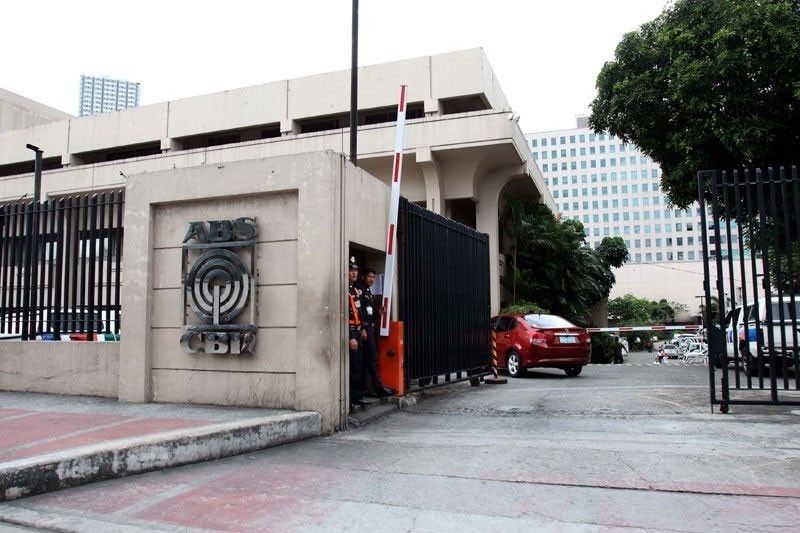ABS-CBN's Philippine Depositary Receipt holders not owners, lawyer says

MANILA, Philippines — Corporate lawyer Francis Lim said that there is nothing wrong with ABS-CBN having Philippine Depositary Receipts—an issue that Solicitor General Jose Calida has raised against the network before the Supreme Court.
In an interview with ANC’s "Early Edition" Wednesday, Lim, a senior partner at ACCRA Law, explained that PDRs give their holders “the right to own a share, but that right is subjected to law.”
“If you are a foreigner, you cannot convert it into a share for example into a share of ABS-CBN Corporation because you’re disqualified from owning shares of ABS-CBN Corporation,” he added.
The Constitution prohibits foreign ownership of mass media.
Section 11, Article XVI of the 1987 Constitution provides: “The ownership and management of mass media shall be limited to citizens of the Philippines, or to corporations, cooperatives or associations, wholly-owned and managed by such citizens.”
Lim, a former president of the Philippine Stock Exchange, also said that PDRs merely gives their owners “the right to receive dividends from the issuer.”
He likened ownership of PDRs into betting on a horse: “[You] buy a ticket to bet on a horse. You don’t own the horse, if that horse wins, you have a share in the winning.”
Calida's allegations
Calida, in his quo warranto plea, argued that the ABS-CBN’s issuance of PDRs to foreigners is “a scheme employed making it appear that the shares remain with the Filipino corporation while granting influence over the mass media enterprise to foreign investors.”
“This scheme is not only prohibited by the 1987 Constitution but criminal liability is also imposed on those who violate foreign equity restrictions and evade nationalization laws of the Philippines though various modes of proxy arrangement, making appear as legal, but the entirety of the arrangement is to accomplish transaction not allowed under Philippines laws,” he added.
Calida argued that foreigners who are PDR holders of ABS-CBN have “beneficial ownership” of the company because they receive dividends.
He pointed to 2015 Implementing Rules and Regulations of the Securities Regulation Code that holds:
Beneficial owner or beneficial ownership means any person who, directly or indirectly, through any contract, arrangement, understanding, relationship or otherwise, has or shares voting (which includes the power to vote or direct the voting of such security) and/or investment returns or power (which includes the power to dispose of, or direct the disposition of such security)
Calida said that by the IRR, a person may be directly or indirectly the beneficial owner of any equity security with respect to which he has voting power or “investment power, which includes the power to dispose of, or to direct the disposition of such security.”
Lim: ABS-CBN's PDR holders cannot vote, are not stockholders
According to Lim, the PDRs issued by ABS-CBN do not even come from the corporation itself, but from ABS-CBN Holdings, which own shares in the network together with other stockholders.
The PDR “gives the holder to receive dividends from ABS-CBN Holdings if it receives dividends from ABS-CBN Corporation,” it said.
“PDR holder is neither stockholder of ABS-CBN Corporation or stockholder of ABS-CBN Holdings,” he added.
Lim also stressed that PDR holders do not have the power to vote at all. They may convert it to share, if qualified and without violating restrictions.
In ABS-CBN’s case, holders of PDRs cannot be shareholders, following the constitution.
READ: 'We did not violate the law': ABS-CBN says Calida allegations have no merit
Rappler case 'essentially the same'
Lim, who represented Rappler in one of its cases, said that the SEC case of Rappler may be considered “essentially the same.”
In 2018, the SEC revoked the incorporation papers of Rappler saying the news site violated the constitutional prohibition of foreign ownership of mass media. Central to the case is Rappler’s issuance of PDRs to Omidyar Network.
Lim explained in Rappler’s case “there is a clause there which says that the PDR holder shall be consulted in case there are amendments in the articles.”
He said that the SEC cited the “special provision” in Rappler’s SEC case.
Meanwhile, ABS-CBN’s PDRs, according to an ABS-CBN "World Tonight" report, include a clause that: “the Issuer has agreed to cause the Company [n]ot to alter, modify, or otherwise change its Articles of Incorporation or By-Laws or take any other action so as to materially prejudice the Right in relation to the PDRs.”
Omidyar has since donated its PDRs to the staff and employees of Rappler. The SEC, upon order of the Court of Appeals, is reviewing the legal effects of Omidyar’s donation.
- Latest
- Trending
































